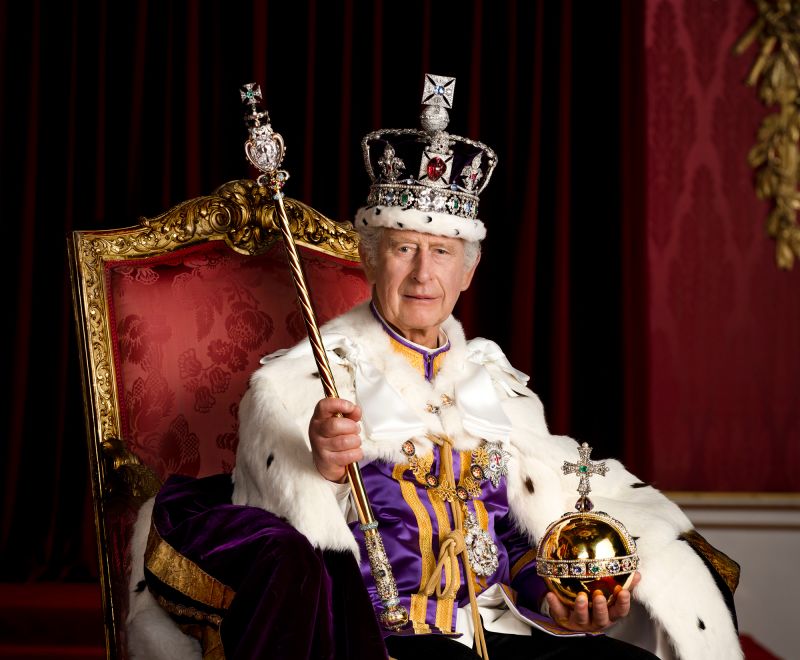The concept of a "king" – a supreme male ruler of an independent state, usually by hereditary right – is one of the oldest and most universally recognized forms of leadership in human history. From ancient pharaohs to medieval monarchs and modern constitutional kings, the figure of the sovereign has shaped civilizations, inspired epics, and commanded immense power and reverence. Yet, while the role of a king might be universally understood, the word itself takes on a dazzling array of forms, reflecting the rich tapestry of human languages, cultures, and historical evolutions. This article delves into the linguistic diversity of "king" across various language families, exploring their etymologies, cultural nuances, and the fascinating journeys these words have taken through time.
The Indo-European Family: A Royal Lineage
The Indo-European language family, stretching from India to Europe, offers a vast and intricate web of words for "king," often revealing ancient shared roots and significant historical borrowings.
1. Germanic Branch: From Kin to King
In English, the word "King" itself has a deep Germanic lineage. It derives from the Old English cyning, which in turn comes from the Proto-Germanic *kuningaz. The etymology of *kuningaz is debated, but a widely accepted theory connects it to *kunjan (meaning "kin" or "family") and the suffix -ingaz (meaning "belonging to" or "descendant of"). Thus, a king was essentially "one of the kin" or "a noble descendant," highlighting the tribal and hereditary nature of early Germanic leadership.
This root is evident across other Germanic languages:
- German: König (pronounced KÖ-nig)
- Dutch: Koning
- Swedish: Konung or Kung
- Danish: Konge
- Norwegian: Konge
- Icelandic: Konungur
2. Romance Branch: The Legacy of Rex
The Romance languages, descendants of Latin, primarily derive their word for "king" from the Latin "Rex." Rex itself comes from the Proto-Indo-European root *h₃rḗǵs, meaning "ruler" or "king," which also gives us words like Sanskrit rajan and Celtic rí. The Roman Kingdom was ruled by reges before the establishment of the Republic.
The influence of Rex is clear:
- French: Roi (pronounced rwa)
- Spanish: Rey (pronounced ray)
- Italian: Re (pronounced ray)
- Portuguese: Rei (pronounced hay or ray, depending on dialect)
- Romanian: Rege (pronounced RE-je)
3. Slavic Branch: Borrowed Authority
The Slavic languages present a fascinating case of borrowing and linguistic evolution. Many Slavic words for "king" are derived from the personal name "Karl" (Charlemagne), the legendary Frankish emperor whose power and influence left an indelible mark across medieval Europe.
- Russian: Korol (Король)
- Polish: Król
- Czech: Král
- Slovak: Kráľ
- Serbian/Croatian: Kralj (Краљ)
- Slovene: Kralj
- Bulgarian: Kral (Крал)
Additionally, Russian and other East Slavic languages also use "Tsar" (Царь), a title for an emperor, which is a direct borrowing from the Latin "Caesar," signifying the ambition to inherit the legacy of the Roman Empire.
4. Celtic Branch: Echoes of Rex
The Celtic languages, another branch of Indo-European, also show connections to the ancient Proto-Indo-European root *h₃rḗǵs.
- Irish: Rí (pronounced ree), directly cognate with Latin Rex.
- Scottish Gaelic: Rìgh
- Welsh: Brenin (derived from a Proto-Celtic word meaning "judge" or "ruler")
5. Indo-Iranian Branch: Raja and Shah
The Indo-Iranian languages offer two immensely influential terms:
- Sanskrit: Rajan (राजन्), from the same PIE root *h₃rḗǵs as Latin Rex. This term gave rise to Raja (राजा) in Hindi and other modern Indian languages, and it has been widely adopted in Southeast Asia (e.g., Malay, Indonesian).
- Persian: Shah (شاه), a title of Iranian monarchs. Its etymology traces back to Old Persian *xšāyaθiya, meaning "ruler, king." Shah was a powerful title, often compounded to Shahanshah (شاهنشاه), meaning "King of Kings," reflecting an imperial claim. This title spread through various Turkic and Islamic cultures.
6. Hellenic Branch: Basileus and Anax
Ancient Greek had several words for "king."
- Basileus (βασιλεύς) was the most common term, used for the kings of ancient Greece and later for the Byzantine emperors. Its etymology is unclear but is thought to be pre-Greek.
- Anax (ἄναξ) was an older, Mycenaean Greek term for a high king or lord, often associated with divine authority, as seen in Homeric epics (e.g., wanax in Linear B).
Afro-Asiatic Family: Semitic and Egyptian Rulers
The Afro-Asiatic language family, prominent in the Middle East and North Africa, provides distinct terms for its rulers.
1. Semitic Branch: Malik and Melech
In the Semitic languages, a common root *m-l-k signifies "to rule" or "to be king."
- Arabic: Malik (مَلِك), a widely used term for king throughout the Arab world and in Islamic history. The word also appears in names like Abdul-Malik ("servant of the King").
- Hebrew: Melech (מֶלֶךְ), used extensively in the Old Testament for the kings of Israel and other nations.
- Amharic: Negus (ንጉሥ), the title for the emperor of Ethiopia, cognate with the other Semitic terms.
2. Ancient Egyptian: The Pharaoh
Ancient Egypt had a unique and iconic title for its rulers: Pharaoh (فرعون). This word comes from the Egyptian pr-ꜥꜣ, literally meaning "great house" or "palace." It originally referred to the royal palace itself and only later, during the New Kingdom (c. 1550–1070 BCE), became a direct address for the monarch, emphasizing the ruler’s embodiment of the state and its power.
East Asian Languages: Emperors and Kings
East Asian languages often distinguish between a "king" (ruling a kingdom) and an "emperor" (ruling an empire, often with a divine mandate).
1. Sino-Tibetan Family: Wang and Huangdi
- Chinese: The word for king is Wang (王). This character has ancient origins and has historically been used for both kings of individual states and, at times, for the overall sovereign before the establishment of the imperial title. For an emperor, the term is Huangdi (皇帝), a title first adopted by Qin Shi Huang (秦始皇) in 221 BCE, signifying a ruler of vastly greater authority than a mere king.
2. Japonic Family: Ō and Tennō
- Japanese: The general term for a king is Ō (王), which is a direct borrowing from the Chinese Wang. When referring to the king of a specific nation, it might be Kokuō (国王, literally "country king"). However, Japan’s own unique supreme ruler is the Tennō (天皇), usually translated as "Emperor." This title, meaning "Heavenly Sovereign," emphasizes the emperor’s divine lineage and spiritual authority, distinct from a secular "king."
3. Korean: Wang
- Korean: The word for king is Wang (왕), also a borrowing from the Chinese character 王. Historically, Korean rulers held the title of Wang (King) rather than Hwangje (Emperor), largely out of deference to China’s imperial status, though their actual power was often equivalent to that of an emperor.
Other Significant Language Families and Titles
Beyond these major families, other languages contribute to the rich tapestry of royal titles:
- Turkic Languages: While Turkic languages have their own historical terms, the Arabic Sultan (سلطان), meaning "authority" or "ruler," became widely adopted across many Turkic-speaking empires and states, such as the Ottoman Empire.
- Uralic Languages:
- Finnish: Kuningas, a borrowing from Proto-Germanic *kuningaz.
- Hungarian: Király, a borrowing from the Slavic kralj (from Karl/Charlemagne).
- Austronesian Languages:
- Malay/Indonesian: Raja, a direct borrowing from Sanskrit rajan, reflecting the historical influence of Indian culture and Hinduism in the region.
- Tagalog (Philippines): While historically chiefs were Datu or Rajah, the Spanish influence later introduced Hari (from Spanish rey).
The Nuance of "King" vs. "Emperor"
A crucial distinction in many linguistic and historical contexts is that between a "king" and an "emperor." While both are supreme rulers, an emperor (e.g., Latin Imperator, Chinese Huangdi, Japanese Tennō, Russian Tsar) typically denotes a sovereign of a larger, often multi-ethnic empire, often claiming a higher status or divine mandate than a mere king. A king usually rules a smaller, more homogeneous kingdom. This distinction is not always strict, but it profoundly influences the choice of titles across different cultures.
The Enduring Legacy
The myriad words for "king" are more than just linguistic curiosities; they are linguistic fossils, preserving echoes of ancient migrations, conquests, religious beliefs, and the formation of political identities. From the kin-based leadership of the early Germanic tribes to the divine mandate of the Japanese Emperor, each term carries a unique cultural weight and historical narrative.
Today, while many monarchies have transitioned to constitutional roles or have been replaced by republics, the word "king" (and its equivalents) continues to resonate. It appears in literature, folklore, and even modern popular culture (e.g., "King of Pop," "King of the Jungle"). The diverse lexicon of royalty serves as a powerful reminder of humanity’s long and varied quest for leadership, order, and the enduring power of language to encapsulate complex societal structures. The royal lexicon, in all its forms, ensures that the figure of the king, in one tongue or another, will continue to reign in our collective imagination.

